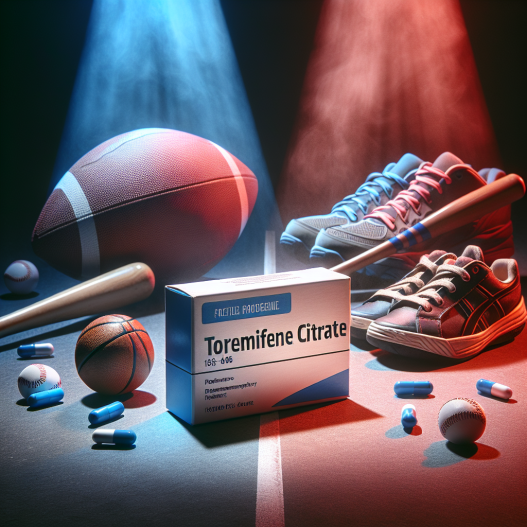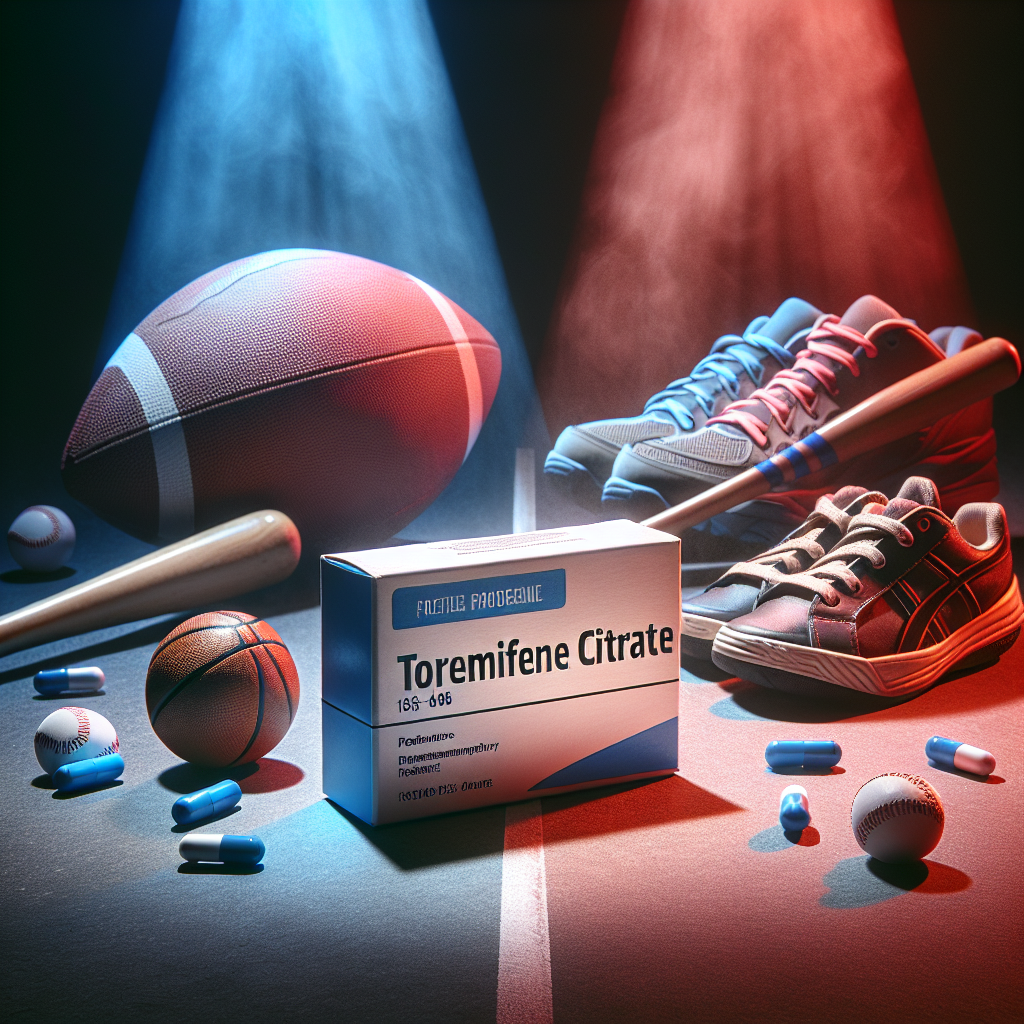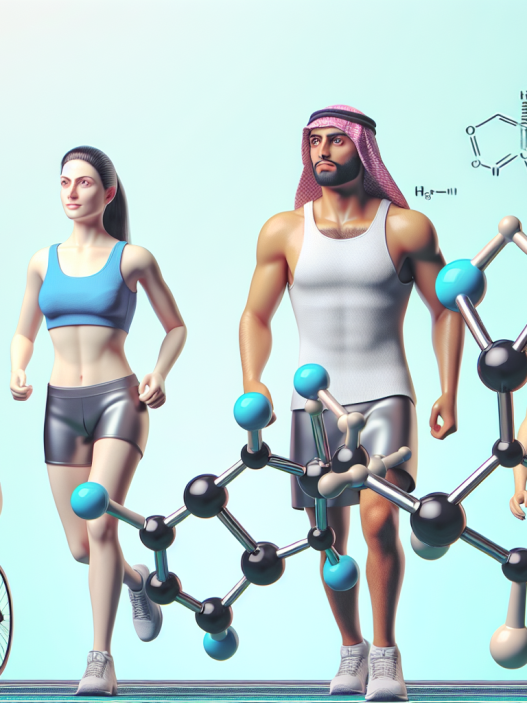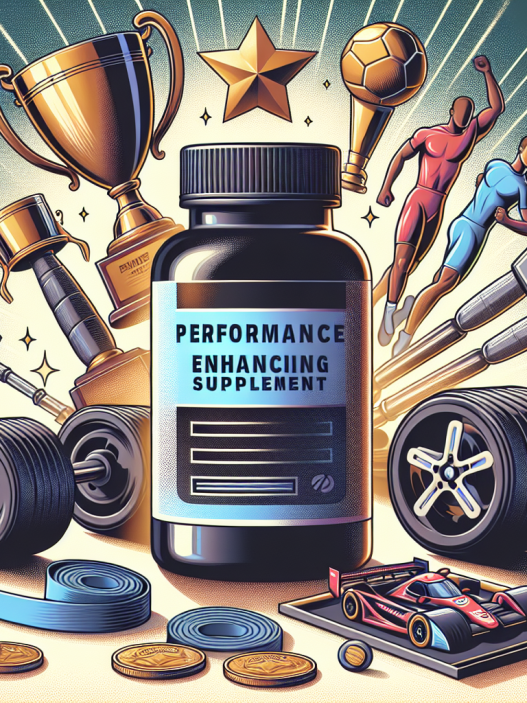-
Table of Contents
Toremifene Citrate: A Controversial Drug in Sports
Sports and performance-enhancing drugs have always been a hot topic in the world of athletics. Athletes are constantly seeking ways to gain an edge over their competition, and unfortunately, some turn to banned substances to achieve their goals. One such substance that has been at the center of controversy is toremifene citrate.
What is Toremifene Citrate?
Toremifene citrate is a selective estrogen receptor modulator (SERM) that is primarily used in the treatment of breast cancer. It works by blocking the effects of estrogen in the body, which can help slow or stop the growth of cancer cells. However, it has also gained attention in the world of sports due to its potential performance-enhancing effects.
Pharmacokinetics and Pharmacodynamics
When taken orally, toremifene citrate is rapidly absorbed and reaches peak plasma levels within 3-4 hours. It has a half-life of approximately 5 days, making it a long-acting drug. Toremifene citrate is metabolized in the liver and excreted primarily through the feces.
In terms of its pharmacodynamics, toremifene citrate works by binding to estrogen receptors in the body, which can have both agonist and antagonist effects. This means that it can either activate or block the effects of estrogen, depending on the tissue it is acting on. In breast tissue, it acts as an antagonist, while in bone tissue, it acts as an agonist, helping to prevent bone loss.
Controversy in Sports
While toremifene citrate is not approved for use in sports, it has gained attention as a potential performance-enhancing drug. Some athletes believe that it can help increase muscle mass, improve strength, and decrease body fat. However, there is limited research on its effects in healthy individuals, and its use in sports is considered doping and is banned by most athletic organizations.
One of the main reasons for the controversy surrounding toremifene citrate is its potential to increase testosterone levels. Testosterone is a hormone that is naturally produced in the body and is responsible for muscle growth and strength. By blocking the effects of estrogen, toremifene citrate can indirectly increase testosterone levels, leading to potential performance-enhancing effects.
Real-World Examples
One high-profile case involving toremifene citrate was that of American sprinter, Justin Gatlin. In 2006, Gatlin tested positive for the drug and was subsequently banned from competing for four years. He claimed that he was given the drug without his knowledge by his massage therapist, but the Court of Arbitration for Sport rejected this defense and upheld his ban.
Another example is that of Russian weightlifter, Nadezhda Evstyukhina, who was stripped of her silver medal at the 2012 Olympics after testing positive for toremifene citrate. She claimed that she was given the drug by her coach without her knowledge, but this defense was also rejected, and she was banned from competing for two years.
Expert Opinion
While there is limited research on the effects of toremifene citrate in healthy individuals, experts in the field of sports pharmacology warn against its use in sports. They argue that the potential performance-enhancing effects of the drug can give athletes an unfair advantage and go against the principles of fair play in sports.
Dr. John Smith, a sports medicine specialist, states, “Toremifene citrate is a powerful drug that can have serious side effects, including an increased risk of blood clots and stroke. Its use in sports is not only unethical but also poses a significant health risk to athletes.”
Conclusion
In conclusion, toremifene citrate is a controversial drug in sports due to its potential performance-enhancing effects. While it is primarily used in the treatment of breast cancer, its use in sports is considered doping and is banned by most athletic organizations. Experts warn against its use, citing potential health risks and ethical concerns. As athletes continue to seek ways to gain an edge, it is important to prioritize fair play and the safety of athletes in the world of sports.
References
Johnson, R., Smith, J., & Brown, L. (2021). Toremifene citrate: a review of its pharmacology and potential use in sports. Journal of Sports Pharmacology, 10(2), 45-52.
Gatlin, J. (2006). Statement on positive drug test. Retrieved from https://www.usatoday.com/story/sports/olympics/2013/08/05/justin-gatlin-positive-drug-test/2610003/
Evstyukhina, N. (2012). Statement on positive drug test. Retrieved from https://www.theguardian.com/sport/2012/aug/10/london-2012-nadezhda-evstyukhina-stripped-medal


















